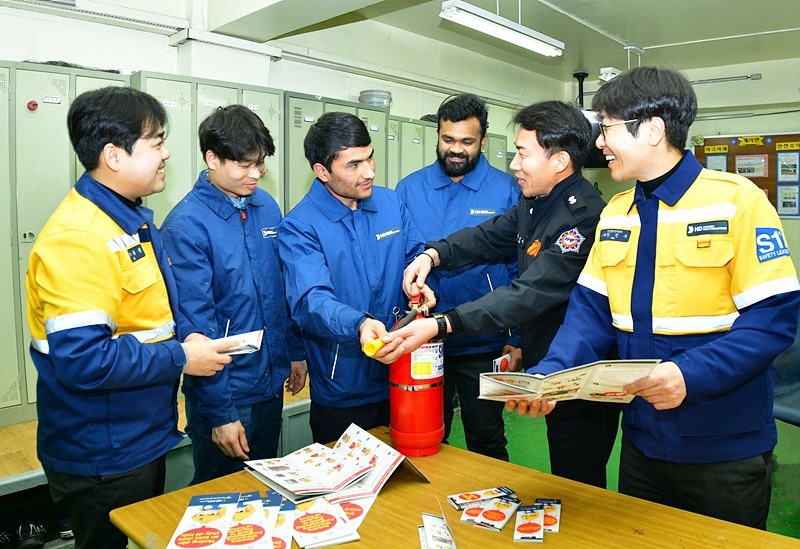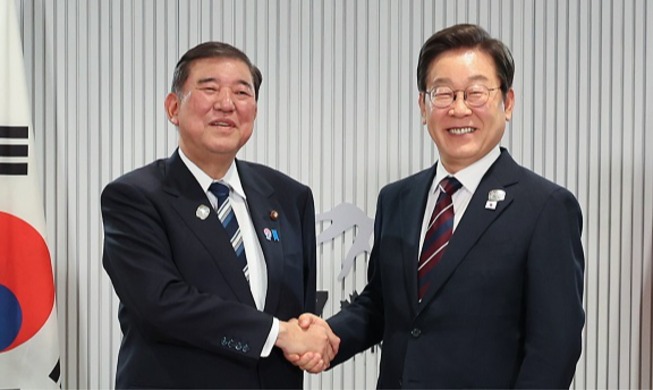- 한국어
- English
- 日本語
- 中文
- العربية
- Español
- Français
- Deutsch
- Pусский
- Tiếng Việt
- Indonesian

Hotels and condominiums from this year can hire foreign staff holding the E-9 (non-professional work) visa. Shown are employees of HD Hyundai Heavy Industries' safety and health support department on Dec. 28 distributing leaflets on fire safety published in 16 languages to its foreign workers. (HD Hyundai Heavy Industries)
By Xu Aiying
Hotels and condominiums from this year can hire foreign nationals possessing the E-9 (non-professional work) visa. From next year, the list of countries eligible to send laborers with that visa will expand from 16 to 17 with the addition of Tajikistan.
The 41st meeting of the Foreign Workforce Policy Committee under the Ministry of Employment and Labor on Dec. 29 approved a plan to allow additional sectors to employ foreign nationals under the Employment Permit System (EPS) and designate countries eligible to dispatch such staff.
Hotels and condominiums including hostels located in Seoul, Busan, Gangwon-do Province and Jeju Island can hire on a trial basis those on the E-9 visa as cleaners and kitchen assistants.
For industries newly permitted to hire E-9 holders, sector-specific associations will provide job training and occupational safety education tailored for each field. Joint supplementary measures for human resource management will consider the characteristics of industry conditions and EPS traits.
Tajikistan was also designated the 17th country allowed to send E-9 workers to Korea.
The committee said the Central Asian nation was deemed able to ensure transparent deployment and publicness as the Tajik government and public sector are fully in charge of sending workers abroad. Tajikistan is also seen as having sufficient capacity for education prior to workers arriving in a country, infrastructure for employee dispatch such as selection exams and its own ways to prevent illegal stays.
The first Tajiks to work in Korea will come next year through procedures such as the signing of a memorandum of understanding on a bilateral EPS and opening of a related center in the Central Asian country.
xuaiy@korea.kr
Most popular
- Military discharge sets stage for reunion of all 7 BTS members
- Presidents Lee, Trump discuss tariff deal in first phone talks
- President's 1st executive order is launch of economic task force
- Method found to boost removal of waste products from brain
- 'We are back!' BTS Festa heralds hyped return of K-pop phenom
